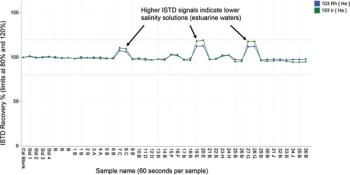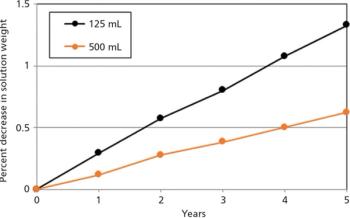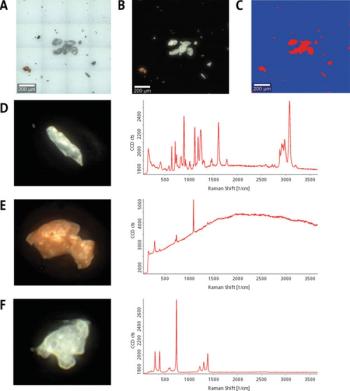
- Special Issues-08-02-2019
- Volume 34
- Issue 8
Bringing Your Raman System in Tune with SERS
Between your Wi-Fi enabled crockpot and the A.I. assistant in your pocket, it may be safe to say we have made it to the future. And while publicized technology moves forward at amazing speeds, lesser-known corners of the sciences may be left behind. This can allow past preconceptions and "rules" to persist, thus hindering future momentum. One such technology that is quickly emerging from the shadows is Raman spectroscopy.
Of course, Raman as a technique has been well-known for decades, but has often been reserved for "expert laboratories" geared around those measurements. Historically, interpretation of Raman spectra has been as much an art as a science, and has been limited to what can be seen by the human user.
Enter the 21st century and preconceptions around Raman hardware and analysis quickly fade away. Ocean Insight is a leading supplier of surface-enhanced Raman substrates (SERS), which use gold and silver nanoparticles to increase observed Raman signal by orders of magnitude.
If you're having trouble detecting your Raman analyte and peers are telling you the technique is just too difficult, try a pack of gold or silver SERS substrates to enhance Raman scattering. A key tip is that your laser wavelength will roughly dictate which SERS metal to use. Typically, a 785-nm laser will work best with gold nanoparticles and a 532-nm laser will be better with silver nanoparticles; a 638-nm laser can use either metal or a mixture to exploit both enhancements.
Choosing the right combination of laser wavelength, spectrometer bench, and SERS nanoparticle can make all the difference in detecting a specific compound, and can dramatically improve detection limits. If your analyte happens to have a structure with a high nanoparticle affinity, you may see limits of detection (LODs) at the part-per-billion or even part-per-trillion level. Raman is a powerful technique that is quickly being miniaturized and fused with modern machine learning, and Ocean Insight is proud to advance technologies in these areas as well as through the SERS chemistries.
Articles in this issue
over 6 years ago
Vol 34 No 8 Spectroscopy, August 2019, The Resource Issue PDFover 6 years ago
Seven Common Errors to Avoid in LIBS Analysisover 6 years ago
Seven Essential Steps for In Situ Reaction Monitoringover 6 years ago
A Short Guide for Raman Spectroscopy of Eukaryotic Cellsover 6 years ago
ICP-MS: Essential Steps to Optimize Matrix Toleranceover 6 years ago
Spectroscopy Software/Computer Hardware/Automation Productsover 6 years ago
Spectroscopic Instrumentation: Spectrometer Systemsover 6 years ago
Sampling/Sample HandlingNewsletter
Get essential updates on the latest spectroscopy technologies, regulatory standards, and best practices—subscribe today to Spectroscopy.




